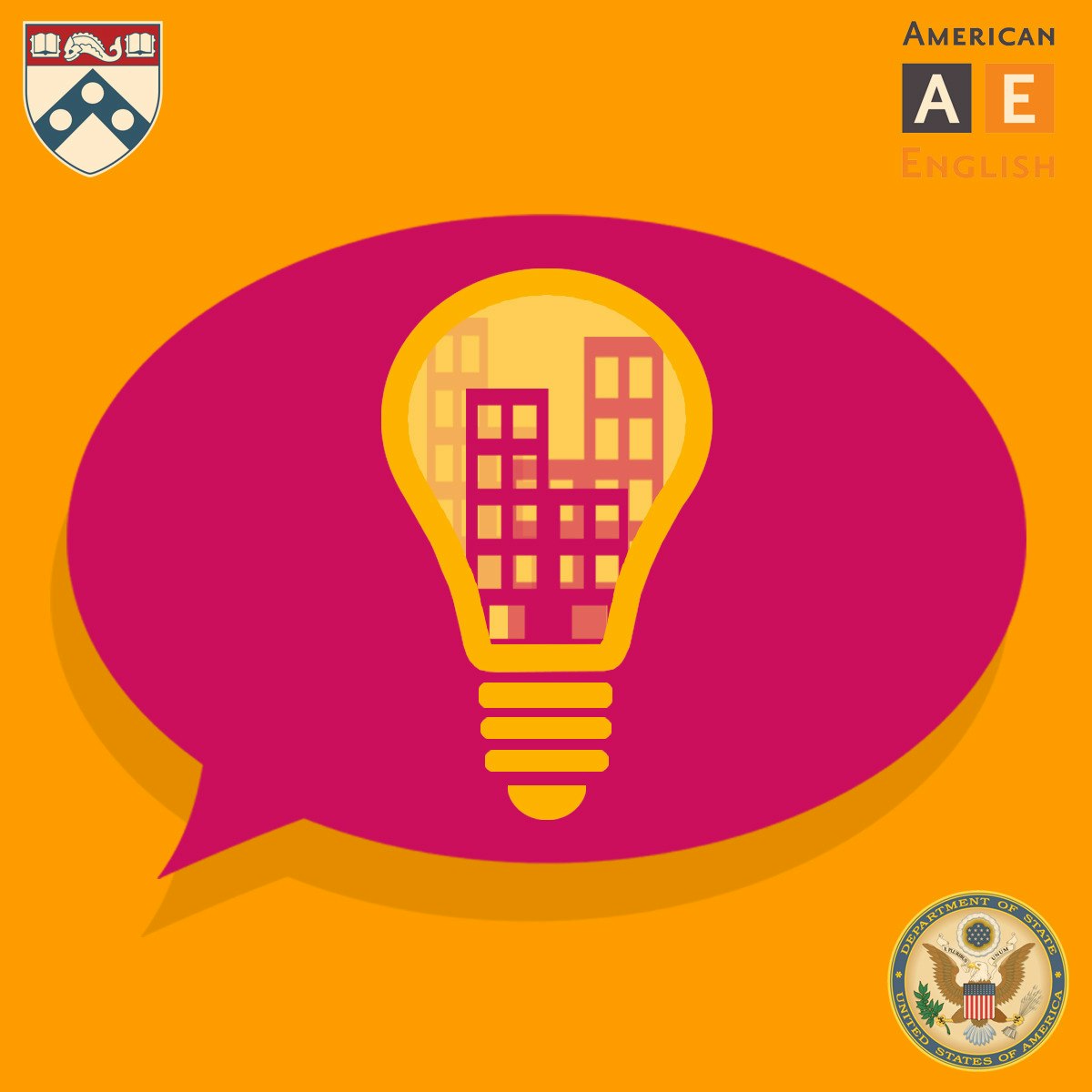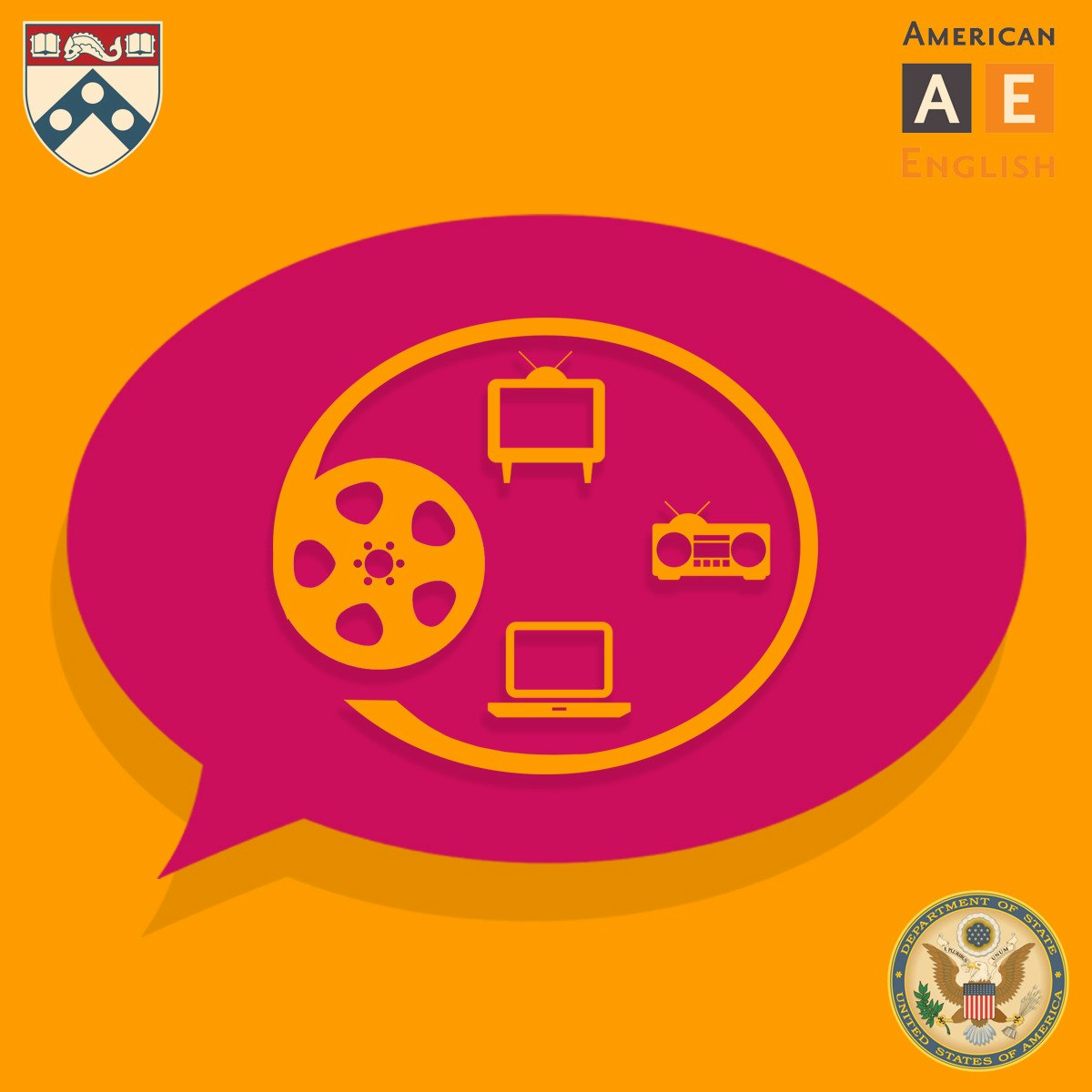Back to Courses









Learning English Courses - Page 7
Showing results 61-70 of 117

English for Business and Entrepreneurship
Welcome to English for Business and Entrepreneurship, a course created by the University of Pennsylvania, and funded by the U.S. Department of State Bureau of Educational and Cultural Affairs, Office of English Language Programs.
To enroll in this course for free, click on “Enroll now” and then select "Full Course. No certificate."
This course is designed for non-native English speakers who are interested in learning more about the global business economy. In this course, you will learn about topics and language necessary to succeed in the international workplace. You will explore business English through authentic readings and video lectures, while learning about business vocabulary, concepts, and issues. Unit 1 will provide an introduction to entrepreneurship by examining ideas, products, and opportunities. In unit 2, you will learn about the basics of market research, including how to identify an opportunity. The next unit in the course will focus on business plans, why these plans are important, and will give you a chance to practice composing a business plan. In the final unit of the course, we will present basics for funding a business and will help you create a persuasive presentation, or pitch, based on a business plan.
Unless otherwise noted, all course materials are available for re-use, repurposing and free distribution under a Creative Commons 4.0 Attribution license.
Supplemental reading materials were provided by Newsela, which publishes daily news articles at a level that's just right for each English language learner.

Advanced Speaking and Listening Project
Learners will present a well-organized academic speech on a topic in an academic field of the learner's choice. The learner will need to recall all of the skills learned in the previous three courses and complete several steps to complete the project. The learner will choose an academic topic and will then need to do some research, interview a couple of experts in the field, create visual elements, and record a video of the presentation. The presenter will use techniques for preparing and practicing a presentation and demonstrate effective verbal and non-verbal skills. Doing this will help prepare you for presentations in school or work.

Adjectives and Adjective Clauses
Being able to adeptly use adjective clauses in speaking and writing is useful for upper level English learners. Adjectives and adjective clauses are very common in English, so students need to be able to understand them when they see them or hear them. Students often struggle to bring complexity to their speaking and writing and adjective clauses can be a great way to do this.
Please note that all of the lectures and practice activities are available for free, but taking the quizzes and getting feedback on assignments are only available in the paid version

Take Your English Communication Skills to the Next Level
This Capstone builds on the communication and content skills you’ve acquired throughout the Specialization and develops them further. During course lessons and Peer Assessments you will practice and expand the language skills necessary for success in the professional world. Throughout the course, you will have the opportunity to complete assessments relevant to the working world.
In this course, you will:
* Study cultural influences on communication more thoroughly, identify key cultural influences in your own experience and compare your culture with a different one to identify ways to improve communication and decrease misunderstanding.
* Develop your email accuracy and style and engage in email correspondence with potential employers, clients or investors to set up interviews and/or meetings.
* Practice and Demonstrate fluent and accurate spoken English as you prepare and present a short talk about a personal accomplishment or “Sales Pitch” for a product or service.
* Polish your pronunciation through more connected speech including use of through groups, contractions/reductions, and linking.
Week by week, as you practice your language skills, make connections with people important to you and develop your network, you will increase your opportunities for success. Completing this Capstone Project will help you reach your English language and professional goals now and in the future.
Lesson | Organize Your Pitch
This lesson is part of a full course, Speak English Professionally: In Person, Online & On the Phone. Take this lesson to get a short tutorial on the learning objectives covered. To dive deeper into this topic, take the full course.
By the end of this lesson, you will be able to produce a well organized outline for a pitch/presentation.
Speak English Professionally: In Person, Online & On the Phone
Do you want to speak better English? This course will help you reach that goal. Speak English Professionally: In person, Online and On the Phone will boost your English speaking skills. In this 5 week course, you will learn how to identify and make a strong personal introduction. You will develop and demonstrate the speaking skills for group discussions: how to agree or disagree, how to clarify, restate and summarize. You will review and practice how to give information and respond to requests on the phone. You will study and role play effective interviewing. You will prepare and give a sales “pitch”, introducing a product or service. Throughout the course, you will adjust how you speak English and you will become more fluent and accurate when you speak. You will demonstrate culturally appropriate body language and tone. As you work through the course, you will complete self- and peer-evaluations. Through a combination of lectures, comprehension and vocabulary quizzes, practice and performance, you’ll gain the skills and confidence to communicate well in English, anywhere in the world.
By the end of this course you will:
• Change how you speak English
• Improve your pronunciation and fluency
• Increase your English vocabulary
• Identify how culture influences your speech
• Use culture to help you speak correctly
• Demonstrate the best body language for different cultural settings
• Know statements, questions and responses for different settings and situations

English for Science, Technology, Engineering, and Mathematics
Welcome to English for Science, Technology, Engineering, and Mathematics, a course created by the University of Pennsylvania, and funded by the U.S. Department of State Bureau of Educational and Cultural Affairs, Office of English Language Programs.
To enroll in this course for free, click on “Enroll now” and then select "Full Course. No certificate." If you want to get a Coursera Verified Certificate for free, please fill out the Financial Aid form.
This course is designed for non-native English speakers who are interested in improving their English skills in the sciences. In this course, you will explore some of the most innovative areas of scientific study, while expanding your vocabulary and the language skills needed to share scientific information within your community. In unit 1, you will learn how to preview texts and practice some of the language used to make comparisons when talking about global warming and climate change. In unit 2, you will examine the chemistry of climate change and the language of cause and effect. In Unit 3, you will learn about some of the impacts of Climate Change and the language used to describe these effects. In Unit 4, you will learn reading strategies that can help you explore the science behind some new energy systems. In the final unit, you will investigate practical advances in Nanotechnology that help slow down climate change, while developing your own research skills in English.
Unless otherwise noted, all course materials are available for re-use, repurposing and free distribution under a Creative Commons 4.0 Attribution license.
Supplemental reading materials were provided by Newsela, which publishes daily news articles at a level that's just right for each English language learner.

Speaking Skills for University Success
As a student in an English-speaking university, you’ll need to speak in many situations, both formal and informal, planned and spontaneous. In this course, you’ll get advice for speaking in many different situations. You’ll learn how to prepare for an academic discussion with classmates and how to lead a discussion effectively. You’ll learn about how to work smoothly in group projects—a popular type of assignment in many university classes—and what to say in small talk with classmates or others. You’ll learn how to give an unplanned, impromptu speech and also how to plan and deliver a formal presentation in class. Speaking in any of these situations can be a bit intimidating, but if you know what to do and practice whenever the opportunity arises, it will become easier, and you can become a more confident and successful speaker.

Business English: Meetings
This course will teach you vocabulary and skills related to participating in meetings. You will learn terms and phrases used both in email and in speaking to arrange, participate in, and conclude meetings. The goals of this course are to enable you to participate effectively in on-site meetings and teleconferences and to prepare you to write a proposal as an outcome of a meeting.
Course Learning Objectives
• Arrange a meeting though email and by telephone
• List expectations and protocols related to on-site meetings and teleconferences
• State phone numbers, dates, currencies and sales figures accurately
• Write a proposal with appropriate organization and vocabulary

English for Media Literacy
Welcome to English for Media Literacy, a course created by the University of Pennsylvania, and funded by the U.S. Department of State Bureau of Educational and Cultural Affairs, Office of English Language Programs.
To enroll in this course for free, click on “Enroll now” and then select "Full Course. No certificate."
This course is designed for non-native English speakers who are interested in learning more about U.S. media literacy. In this course, you will explore different types of mass media, such as newspapers, magazines, television, and social media. This course will also give you the opportunity to develop a broader understanding of the role media plays in our lives, while building your vocabulary and giving you the language skills needed to analyze what you read and watch. The first unit in this course will provide an introduction to media literacy and give you an opportunity to evaluate your own media literacy level. In unit 2, you will learn how to identify facts versus opinions in the media. The next unit in the course will focus on the differences between social media and traditional media, while unit 4 will look at how gender and identity are covered in the media. In the final unit of the course, you will demonstrate your increased media literacy by through a culminating final project on social media.
Development of this course was funded by the U.S. Department of State Bureau of Educational and Cultural Affairs Office of English Language Programs. Unless otherwise noted, all course materials are available for re-use, repurposing and free distribution under a Creative Commons 4.0 Attribution license.
Popular Internships and Jobs by Categories
Find Jobs & Internships
Browse
© 2024 BoostGrad | All rights reserved